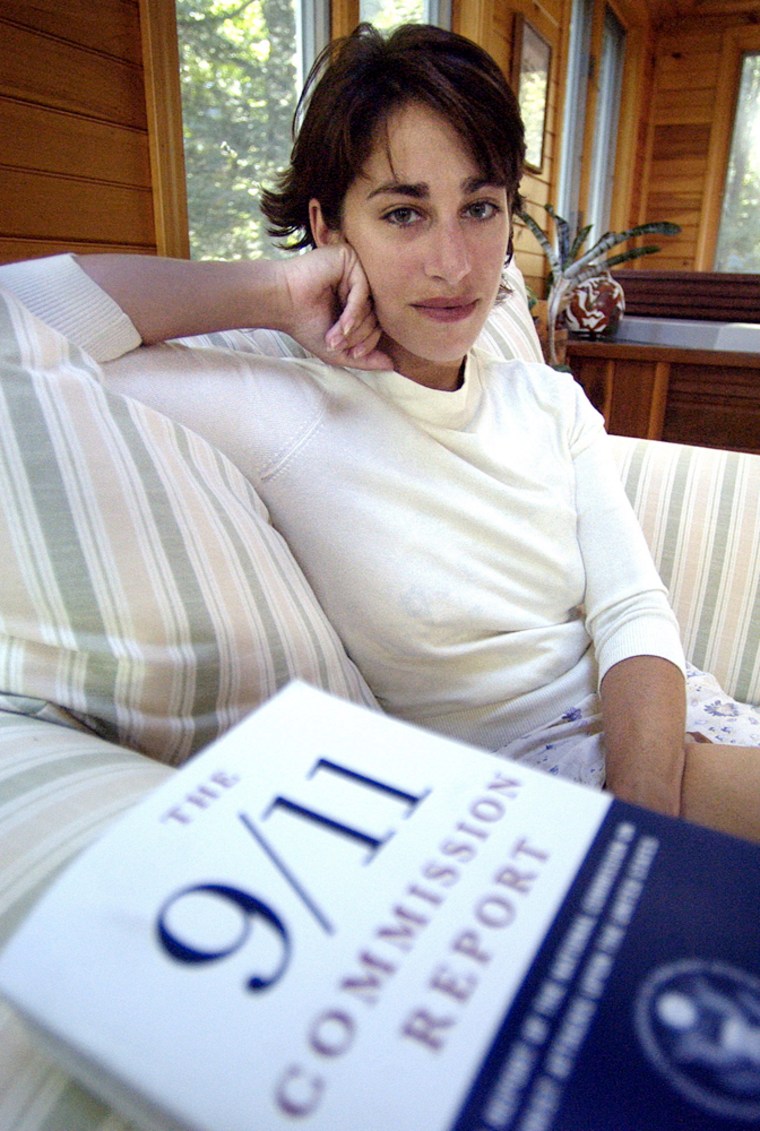After three years of angry advocacy, the families of Sept. 11 victims have achieved a rare position of influence over policy-makers, but they are about to face their toughest political test yet.
They goaded officials into creating a bipartisan commission to investigate lapses leading up to the attacks, and then helped the panel win cooperation from recalcitrant agencies and greater access to classified documents. After the commission urged sweeping changes in how intelligence agencies are run, one family group even established a Web site to monitor the progress of the proposals.
“I know I will continue to remain active because it’s the only thing I can do to make sure my mom’s murder was not in vain,” said Carie Lemack, whose mother, Judy Larocque, died aboard American Airlines Flight 11, which was flown into the World Trade Center.
Advocating in an election season
While no elected official wants to be seen as thwarting their will, Larocque and other activist family members in coming weeks will have to advocate before lawmakers and administration officials keenly focused on the Nov. 2 election.
Rep. Sherwood Boehlert, R-N.Y., who said pressure from the families has already spurred positive reforms within the FBI and elsewhere in government, said he believed the intensity of the election season will likely delay legislative passage.
“One side wants to do everything immediately, and others are saying go slow, which could be a code word for not doing very much,” said Boehlert. “I think it’s doable, but I think it will probably be done in a lame duck session.”
The proposed alterations would dramatically change the power structure in certain parts of Washington, particularly the Pentagon, which currently controls most of the government’s intelligence spending. On Wednesday, President Bush offered legislation that would create a new intelligence director post with authority for 75 percent of the budget.
“We’ve seen over the past year that we can make waves,” said Chris Burke, who lost his younger brother Tom at the World Trade Center.
At the same time, Burke, of Glen Head, N.Y., said he worries that the most outspoken family members may be rushing the process too fast. “I don’t know that the 9/11 families are the coolest heads in town. These are people who are motivated by the best intentions, but they’re also motivated by a degree of anger and bitterness which can cloud judgment,” he said.
Families' clout could diminish
The family members could also see their clout diminish over time, said Victoria Cummock, who has been waging similar battles for more than 10 years.
Cummock’s husband died when a bomb exploded aboard Pam Am Flight 103 over Lockerbie, Scotland, in 1988.
She, too, became an advocate. A mother of three living in Boca Raton, Fla., Cummock spent tens of thousands of dollars of her own money pressing lawmakers to act. She testified before 28 congressional committees and served on a commission to improve security. But she’s still not satisfied.
“I always thought if the there was something wrong, the government was there to fix it for us,” she said. “I was so naive.”
For her, much of the current talk in Congress about reforming government, and the need to move carefully and slowly, is disturbingly familiar.
“It is very disheartening to hear them echoing the same sentiments I’ve heard before,” said Cummock, who now offers advice to Sept. 11 families attempting to complete much of her work. She is still furious that the government has engaged Libya after that country agreed to disarm its fledgling nuclear weapons program. The Libya talks illustrate, she said, that families should never let up the pressure on elected officials.
Her advice to the families: “Get in there and scream as much as you possibly can.”
Monica Gabrielle of West Haven, Conn., who lost her husband Richard in the World Trade Center attack, believes the death toll may be enough to force action where similar efforts in the past have failed.
“You don’t change a stop sign into a traffic light until there’s enough deaths,” she said. “Three thousand people should be enough.”
